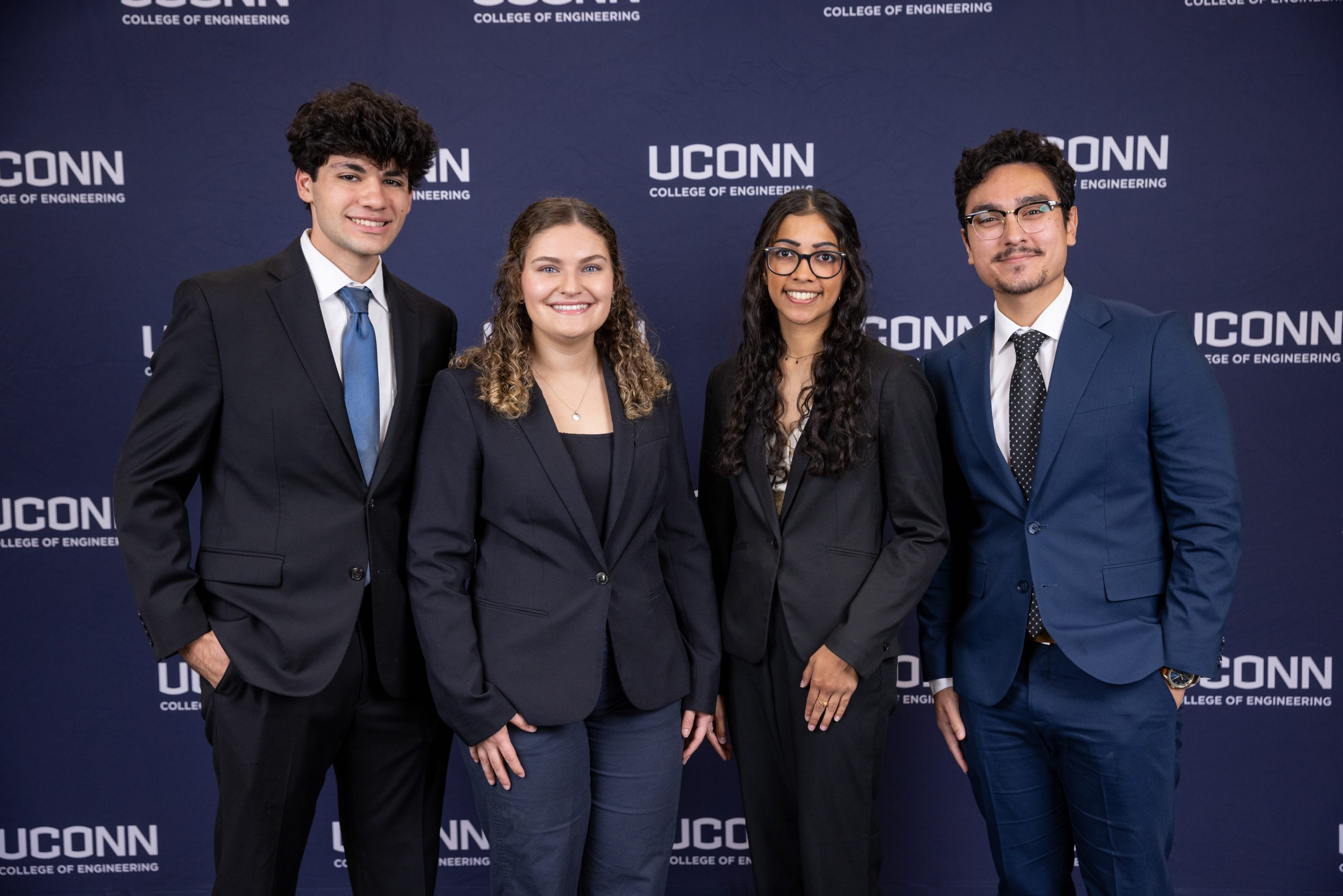
Figure 1

Figure 2

Team 3
Team Members |
Faculty Advisor |
Thanasi Dimopoulos |
Dr. Ioulia Valla Sponsor UConn College of Engineering |
sponsored by
Sponsor Image Not Available
Designing a Sustainable Aviation Fuel from Biomass through Thermochemical Processes
The aviation industry heavily consumes petroleum-based jet fuel, which significantly contributes to greenhouse gas emissions and environmental degradation. In the United States, jet fuel consumption averages to approximately 1.65 million barrels per day. As the demand for both international and domestic travel continues to grow, finding alternatives to conventional jet fuel is essential in reducing the environmental impact of aviation. Sustainable aviation fuels (SAFs) are emerging as a viable alternative to state-of-the-art jet fuels. These fuels utilize biomass, a renewable and abundant resource, to create a more sustainable fuel solution, which has the potential to significantly reduce greenhouse gas emissions from commercial flights. The objective of our project is to develop a SAF option that is both technically and economically feasible at a macroscopic level while meeting current aviation fuel specifications. Our proposed process converts rapeseed, a renewable feedstock, into SAF through hydrodeoxygenation. This chemical process removes oxygen from biomass by introducing hydrogen molecules to synthesize hydrocarbons. Using Aspen Plus, a widely used process simulation software, our team models the thermochemical process and evaluates the economic and environmental impacts of the proposed SAF. By implementing this method, the project seeks to improve fuel efficiency and performance while significantly reducing carbon emissions. This approach provides a powerful pathway for transitioning the aviation industry toward sustainability while ensuring fuel reliability and performance, with the potential to drive long-term reductions in aviation-related greenhouse gas emissions.
